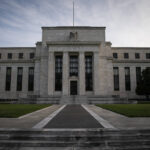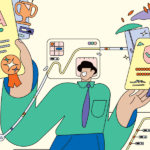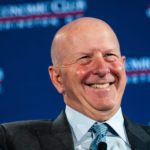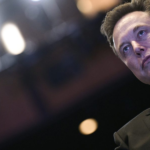In a chorus of caution, echoing concerns raised by figures like Elon Musk and Michael Burry, veteran economist Carl Weinberg has issued a warning about the unprecedented levels of debt carried by American households. The repercussions, he believes, could spell trouble for the US economy.
Weinberg highlighted the alarming trend of consumers relying on their credit cards to finance their spending, with interest rates reaching exorbitant levels. Speaking with CNBC, he expressed his anticipation of a consumer-spending retrenchment in the coming new year.
Elon Musk, founder of Tesla, had previously painted a similar picture in October, emphasizing that a significant portion of the population is living paycheck to paycheck, burdened by substantial debt. Musk noted that credit-card payments had become “extremely punishing,” particularly for those accruing interest at 20%, potentially leading them to a precarious financial situation.

Michael Burry, known for his prediction in “The Big Short,” sounded a similar warning in 2022. He cautioned that consumers, depleting their pandemic savings, were resorting to increased credit card usage to cope with higher prices and growing interest payments. Burry foresaw an inevitable slowdown in spending and a looming recession.
Various financial figures, including Citadel’s Ken Griffin, bond billionaires Bill Gross and Jeff Gundlach, JPMorgan’s Bob Michele and Mike Wilson, as well as economists David Rosenberg and Stephanie Pomboy, have also expressed similar concerns. Their unease stems from the dual impact of severe inflation and soaring borrowing costs faced by American consumers over the past 18 months.
The annualized rate of price growth hit a 40-year high of over 9% last summer, remaining close to double the Federal Reserve’s target rate of 2%. In response, the central bank raised interest rates from near zero to above 5%, significantly increasing the monthly financial burden on Americans for mortgages, car loans, credit cards, and other debts.
While Weinberg foresees a pullback in household spending leading to an economic slowdown, he stops short of predicting a full-blown recession. Acknowledging the non-trivial risk that consumers may encounter financial challenges, he pointed to recent data from the New York Fed, indicating a nearly 5% increase in credit-card balances to a record $1.1 trillion last quarter. Delinquencies rose, and overall debt loads climbed, while real incomes failed to keep pace with growing borrowing costs.
Weinberg contends that the downside risk lies in consumer credit and credit card usage, posing a potential threat to the optimistic outlook that the Fed can curb inflation without triggering a recession. He attributes the inflation spike to the monetary and fiscal easing during the pandemic and expects it to revert to normal levels soon. Consequently, he anticipates significant rate cuts by the Fed next year as a corrective measure.









